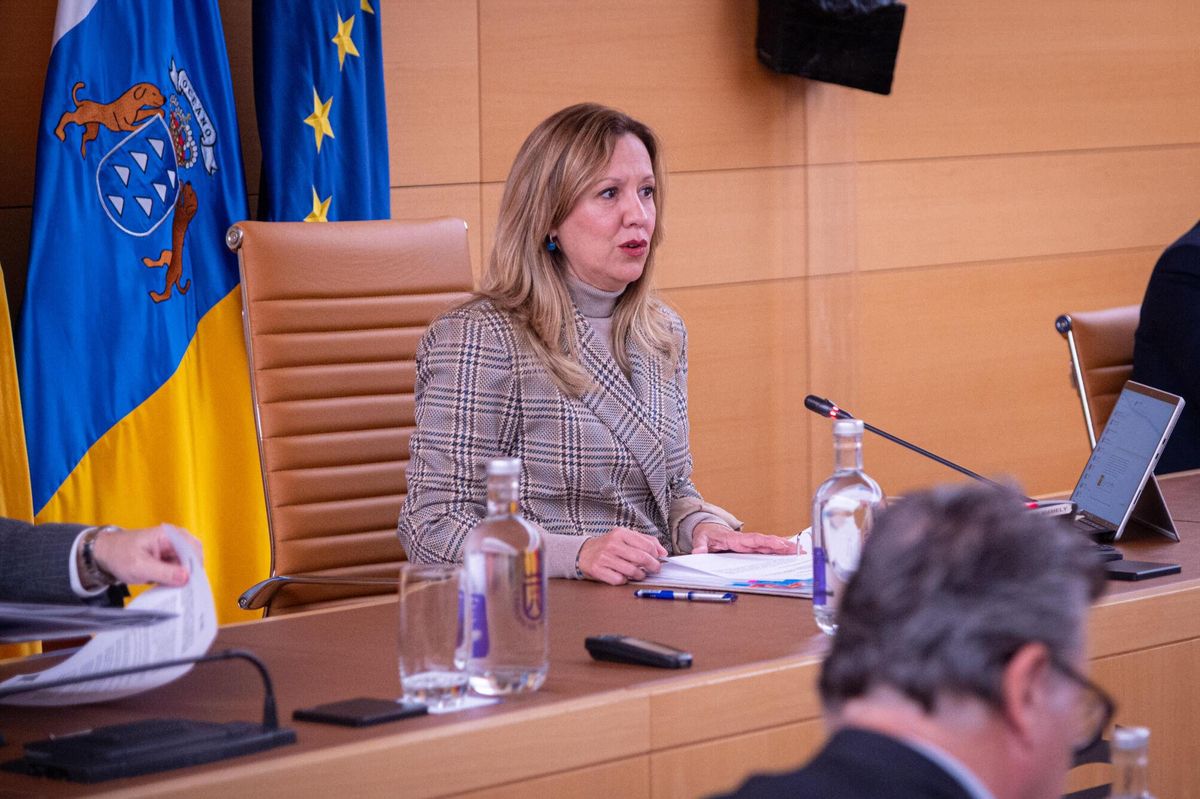Tenerife asserts that Free access to its public transport should remain rooted in its Economic and Fiscal Regime (REF) and that “this beneficial measure” should shift from being “conjunctural” to “structural”, independent of political influence or the application of decree law by the Cabildo.
Discussion
The Deputy President, José Miguel Ruano (CC), designed and advocated for the proposal with the notion that “it is unnecessary to amend the REF legislation” to incorporate free transport. His argument arises from the reality that “the precarious parliamentary minority in the State has been enforced, leading to a new Royal Decree Law being approved, containing a third of the measures that were rejected by Congress on January 22.” This pertains to the Royal Decree Law 1/2025, dated January 28, which approves “urgent measures concerning economy, transport, social security, and addressing situations of vulnerability.”
Foundation
The agreement highlights that “decisions impacting the daily lives of residents cannot hinge on the instability of the Government of Spain and necessitate that certain crucial decisions with significant social ramifications assure their continuity, particularly in a community faced with the social circumstances of the Canary Islands.” Specifically, concerning the competencies that impact the Insular Cabildo of Tenerife – akin to the other island councils – such as land transport, “it is imperative to guarantee that the funds allocated for land transport in the archipelago are sustained indefinitely. Consequently, this ensures free transport for regular commuters,” the document states. Hence, the agreement concludes that “this specific forecasting and the enormous effect that free transport has had on the familial economy of Tenerife and sustainable mobility on the island necessitate that this council makes a definitive declaration for the tram and guaguas gratuity to be a lasting measure for frequent travellers in Tenerife.”

Plenary of the Cabildo de Tenerife (01/31/2025) / Rafael Arturo Jiménez Rivero. ELD
Waste Regulations
The Insular Plenary also sanctioned a new ordinance concerning the waste management charge, receiving approval from CC and PP, while the PSOE abstained and Vox opposed. Starting from April 10, the Canary Islands will implement European regulations to cover costs, which is anticipated to result in an increase of nearly 15 million Euros annually for local councils. The island director of the Treasury, Juan Carlos Pérez Frías, mentioned that a waste tax, alongside another on greenhouse gas emissions, will be introduced, with a set rate of 90.39 Euros per tonne delivered at the Tenerife environmental complex, located in Arico. Pérez noted that the Cabildo has been financing costs amounting to almost 36 million Euros from January 1, 2023, to April 9, when the moratorium concludes. He clarified that moving forward, they will also take on the operational costs of the recycling stations, estimated at 3.6 million Euros per year, which will offer a “relief” for the municipalities. Frías emphasised that “the ordinance has remained dormant since 2019 and must be enforced to avert deficiencies.”
Pros and Cons
The spokesperson of the nationalist group, José Miguel Ruano, dismissed any discrepancies with the Canarian Federation of Municipalities (FECAM), affirming that they have maintained a close partnership with municipalities and their mayors, communicating the model from the territorial councils, CIAT. Aaron Afonso, spokesman for the PSOE – who frequently challenged movements alongside Pedro Martín – expressed a conflicting viewpoint with Ruano. He stated that the charge does not penalise the single rate for waste already sorted at the source, but rather targets those that will not be processed; in other words, destined for landfill. The CC spokesperson critiqued the Sánchez government for its handling of the transposition of the European Compliance Directive. Manuel Fernández (PP) condemned what he referred to as the “Bass Tasazo”, directly attributing responsibility to “named individuals” including Pedro Sánchez. He maintained that the President of the Government of Spain opted for the “easiest route”, which involves “increasing taxes for citizens.” Aaron Afonso argued: “The model does not incentivise selective collection.” He reproached the governing party for “failing to organise meetings with municipalities aside from the CIAT in November, not conducting a cost analysis, and not providing technical assistance to municipalities with less than 5,000 residents.” He emphasised: “Any waste will be subjected to the fee, which represents a drawback.” Naím Yánez (Vox) opposed what he termed “the imposed measures of the Sánchez government” that “directly infringe upon the pockets of residents in Tenerife”, criticising the “climate fanaticism” of the EU and the current administration.

Plenary of the City of Santa Cruz (01/31/2025) / Rafael Arturo Jiménez Rivero. ELD
Emotion and Ideology
Emotion and ideology played significant roles in the motion from the mixed group aiming to support Venezuelans. Efraín Medina introduced the emotional aspect by recalling verses from Manuel Navarro Rolo regarding the crossing of El Telémaco. Feelings also surfaced in Ana Salazar (Vox), who labelled socialist councillors as “criminals and under investigation” – facing accusations in return of being “racist or homophobic”. She refused to retract despite the outrage and mediation of the president. Nauzet Gugliotta defended the PSOE’s amendment “to enrich the proposal”, which was rejected due to the overwhelming influence of ideology, leading to the familiar retort of “you more.” Ultimately, there was unanimous approval for specific support directed at the Venezuelan community. This includes ten million in the diaspora, 500,000 in the state, 75,000 in the Canary Islands, and 50,000 on the island.
Additional Matters
Naím Yánez of Vox – who also serves as a councillor in Arona – successfully had his partial dedication and secondary activity approved. He voted against the PSOE regarding access to that position (Yánez was absent). The Socialists faced rejection for their motions concerning the dependency agreement and the assistance for merchants in Playa Jardín (Puerto de la Cruz). The clarifications concerning the rate in natural spaces or subsidies to distribution organisations also did not present any new developments. A more definitive response was given by José Miguel Ruano regarding the Prug del Teide: they will not endorse the Valbuena Plan as it contradicts the interests of the island regarding mobility and beekeeping, although “progress has been achieved” with the Ministry of Ecological Transition. Javier Rodríguez mentioned that the delay stems from Minister Zapata being “far from being an influencer.” Ruano was direct in response to Yánez’s inquiry regarding remarks made by Rosa Dávila on migration, urging him to refer back to the original source. Regarding the pedestrian walkway of Father Anchieta, the Minister of Roads, Dámaso Arteaga, announced its completion in September, coinciding with the start of the academic year, which has been postponed from the anticipated timeframe of April or May due to “technical considerations.”
Neither Context nor Form
In a tense and abrasive atmosphere, even amongst individuals as moderate as the popular Lope Afonso or José Carlos Acha, without sacrificing decorum, the four-hour insular plenary session is unlikely to be remembered favourably in history. Even Rosa Dávila appeared eager to conclude yesterday’s session – she did not miss the opportunity to commend Patroness on Sunday 2 and all candelaries – to the extent of interrupting Dámaso Arteaga’s final comments, before backtracking to inject one of the rare moments of levity into the session. The frustration surrounding both the proceedings and outcomes resulted in a dull debate, lacking in outcomes and enthusiasm, reflected in the overall mood. It may well be an effect of the January slump, widely labeled as the most dismal time of the year. However, February is approaching, bringing the carnival season.
Subscribe to continue reading















